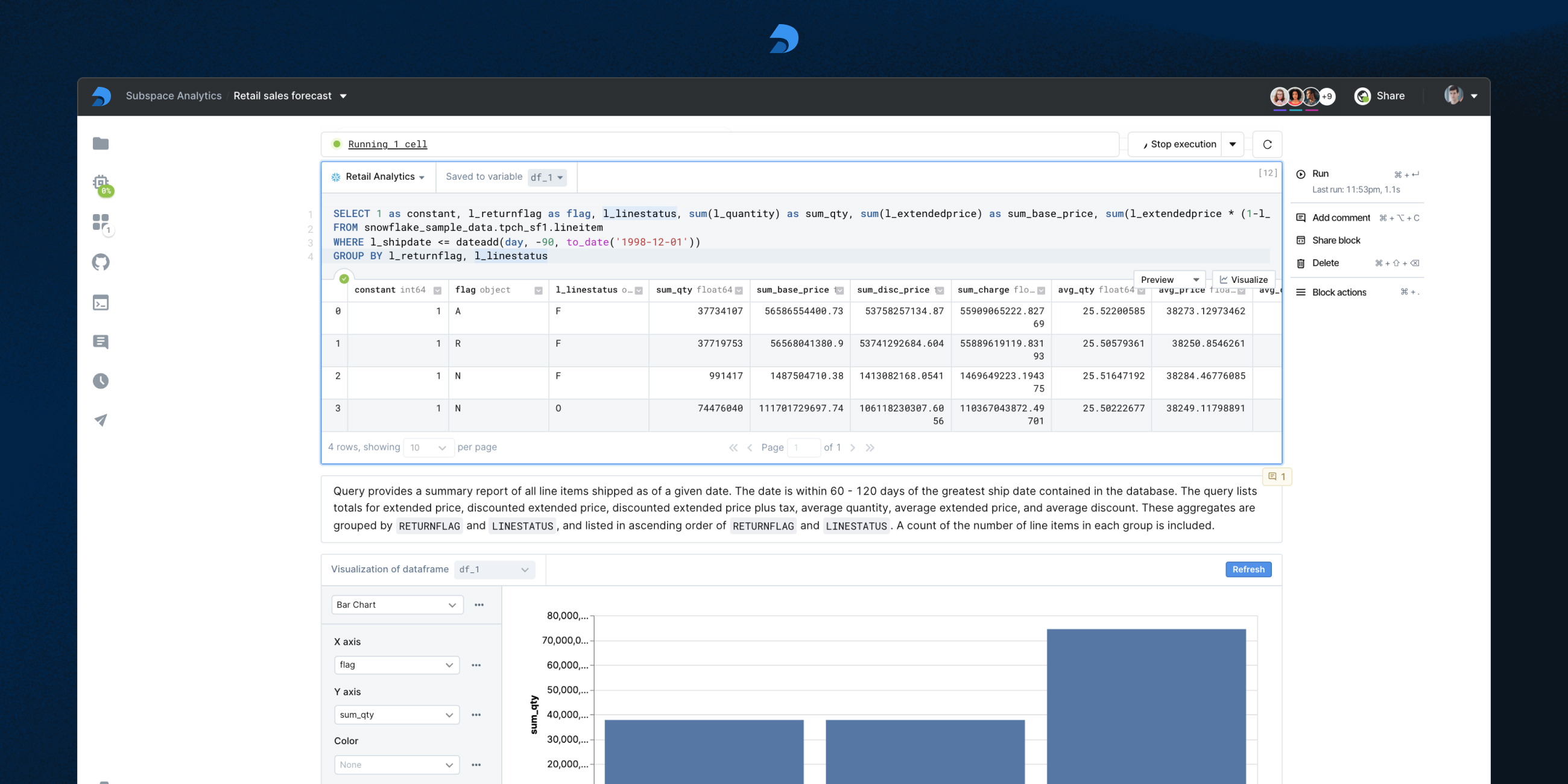The Station is a weekly newsletter dedicated to all things transportation. Sign up here — just click The Station — to receive it every weekend in your inbox.
Hello readers: Welcome to The Station, your central hub for all past, present and future means of moving people and packages from Point A to Point B.
As always, you can email me at kirsten.korosec@techcrunch.com to share thoughts, criticisms, opinions or tips. You also can send a direct message to me at Twitter — @kirstenkorosec
Before we jump in, I wanted to bring your attention to a plea by TechCrunch editor Devin Coldewey to “Please make a dumb car.” That might sound silly coming from a media outlet focused on technology — and the people investing and building it. But technology for technology’s sake can lead us down some tricky paths. Just look at some of tech-laden vehicles on roads today.
This doesn’t just lead to a poor user experience, a point that Coldewey makes. This feature bloat has also helped fuel the chip shortage, as Jim Motavalli wrote a few weeks ago.
One final note to all those builders out there. The fourth round of the Transit Tech Lab has launched and is looking for technologists to submit ideas on ways to restore customer confidence in public transportation, improve resilience to weather extremes, and further reduce the region’s carbon footprint. (That’s one big task.)
The Metropolitan Transportation Authority, Port Authority of New York and New Jersey, NJ TRANSIT, NYC Department of Transportation and the Partnership for New York City are behind the Transit Tech Lab. Applications for the Recovery Challenge and Sustainability Challenge are due March 25 and are accessible here.
Is driverless vehicle data a trade secret?

In case you missed it, Waymo filed a lawsuit against the California Department of Motor Vehicles in an effort to protect certain data from its driverless vehicle operations from being shared with the public. (The Los Angeles Times was the first to report on the lawsuit)
The end result of this lawsuit, which was filed in the Superior Court of California, Sacramento, could end up having broad implications for the rest of the industry — at least in that state.
Here’s the gist of the lawsuit. Waymo, along with every other autonomous vehicle developer that wants to test and deploy in California, must receive a permit from the California DMV. (There are actually multiple permits required at different stages to be able to deploy a commercial, driverless vehicle service like a robotaxi).
Waymo shared information about its safety practices and technology as part of the application process. The DMV asked Waymo some specific questions, which the company answered. Problems arose after a person made public record request to the DMV to disclose the documents that the company had sent. Waymo contends that its initial application and follow-up response should be redacted if disclosed to the public because they include trade secrets.
The company wants to protect details about how its AVs identify and navigate through certain conditions, its emergency backup system, internal processes for assessing and, if necessary, remediating the circumstances that were deemed to have led to certain collisions.
Here is Waymo’s official response, which a spokesperson emailed to me: “Every autonomous vehicle company has an obligation to demonstrate the safety of its technology, which is why we’ve transparently and consistently shared data on our safety readiness with the public. We will continue to work with the DMV to determine what is appropriate for us to share publicly and hope to find a resolution soon.”
I reached out to a few experts to get their take and one of the more interesting ones was from Matthew Wansley, former general counsel of nuTonomy (which Aptiv acquired) and a law professor at Yeshiva University’s Cardozo School of Law in New York.
While he said it’s certainly possible that some of this information is not widely known or readily ascertainable and could be economically valuable to competitors, he doubts that all of that information would qualify as a trade secret. (It is of course hard to know if these sections that Waymo has redacted are actually trade secrets without seeing behind the redactions, he noted)
He did propose a solution that I will post below.
In my view, the best way for the public to assess AV companies’ safety performance is to require companies to file crash reports, which California has done for years and NHTSA is starting to do. The weak part of California’s crash reporting system is that, if a crash is in Conventional Mode (that is, the safety driver was in control of the vehicle at the time of the crash), the company isn’t required to say whether the safety driver took over in the moments before the crash (which would suggest that the safety driver was worried that continued autonomous operation would lead to a crash). California could easily fix this by requiring companies to disclose the time elapsed between when the AV was last operated in autonomous mode and the collision. If we fix this loophole, we should have a good idea of how often AVs are causing or failing to prevent crashes.
Deal of the week

Investment activity in aviation — specifically air taxis — continues to ramp up as illustrated by Boeing. The company announced it invested $450 million into Wisk, a startup trying to develop and commercialize electric, self-flying air taxis.
Wisk has been pursuing its eVTOL game plan for nearly 12 years now. The company launched in 2010 as Zee Aero and then merged with Kitty Hawk Corporation. The fifth-generation aircraft — and the team working on it — were spun out of Kitty Hawk under the name Wisk. Boeing helped fund Wisk’s initial launch as a separate company.
Not all eVTOL companies are aiming for autonomous flight. Wisk’s focus on autonomous flight is one of the factors that attracted Boeing.
This new capital will be used to fund the development of the company’s sixth-generation electric vertical takeoff and landing (eVTOL) aircraft. Wisk is aiming to bring this sixth-gen aircraft through the lengthy U.S. certification process.
Wisk said the funds are also going to be used for what it describes as an “intensive growth phase” over the next year. For the company, that means preparing to ramp up manufacturing operations and its go-to-market efforts. That doesn’t mean Wisk will be headed to market or producing its eVTOL aircraft in large volumes this year.
However, the company is bullish on its trajectory, going so far as to make a bold forecast that it will achieve 14 million annual flights within five years of its certification.
Other deals that got my attention …
ABB acquired a controlling stake in electric vehicle commercial charging infrastructure company InCharge Energy. ABB initially acquired a 10% stake through its investment in the Series A venture capital funding round in 2020 and has now increased its interest to approximately 60% of InCharge Energy’s issued share capital.
Accell Group, the maker of bicycle brands Batavus, Raleigh and Sparta, was acquired by a consortium led by KKR, Reuters reported. The deal values the bike manufacturer at 1.56 billion euros ($1.77 billion).
BasicBlock Inc., a financial technology company focused on the trucking industry, raised $78 million in debt and equity raise. Autotech Ventures, Clear Haven Capital Management, Emergent Ventures, and Nelnet invested in the company. Existing investors Revolution’s Rise of the Rest Seed Fund, SaaS Ventures and TNT Ventures also joined.
Cowboy, the Brussels-based ebike and services startup, raised $80 million in a Series C round of funding co-led by Exor, HCVC and Siam Capital. Tiger Global, Index Ventures, Eothen, Isomer Opportunities Fund, Future Positive Capital and Triple Point Capital also participated. Cowboy, which has raised $120 million to date, did not disclose its valuation or any sales numbers, but did say that it’s on track to reach 100,000 riders by 2023.
Gopuff, the delivery startup, is reportedly working with banks including Goldman Sachs Group Inc. for an initial public offering in the second half of the year, Bloomberg reported.
Gorillas Technologies is reportedly in talks to buy French delivery firm Frichti, Bloomberg reported.
Hozon New Energy Automobile Co., the Chinese electric vehicle startup, is trying to raise about $500 million before a potential listing in Hong Kong this year, Bloomberg reported.
Jidu, an electric automaker founded by Baidu and Chinese auto partner Geely in 2021, raised $400 million in a Series A round. The funding came from Baidu and Geely and will be used to speed up the automaker’s R&D and mass production process and allow it to showcase its first concept “robocar” — which it classifies as an automotive robot rather than a car — at the Beijing auto show in April.
Laka, the London-based insurer for bike and e-bike owners, raised $12 million in Series A round led by Autotech Ventures with participation from Ponooc, ABN AMRO Ventures, Creandum, LocalGlobe, angel investor Eric Min, and Elkstone Partners.
Mayd, a Berlin-based startup that’s building an on-demand medicine delivery platform in Europe, raised a €30 million (~$34 million) Series A funding round led by U.S. investor Lightspeed Venture Partners. Previous investors Target Global, 468 Capital and Earlybird Venture Capital also participated.
May Mobility, the autonomous shuttle startup, raised $83 million in a Series C investment led by Mirai Creation Fund II, which is managed by Sparx Group Co. New investors Tokio Marine and Toyota Tsusho also participated along with returning backers Toyota Ventures, Millennium Technology Value Partners, Cyrus Capital Partners, 1843 Capital, BMW i Ventures and Bay Lake Ventures. May Mobility has now raised $166 million to date. The new funds will be used to work on future platforms and public deployments of the Toyota Sienna Autono-MaaS equipped with May’s autonomous driving kit by 2023.
Ola Electric raised $200 million in a new financing round that included Tekne Private Ventures, Alpine Opportunity Fund and Edelweiss. The company, which has struggled to deliver its maiden electric scooter to customers, is now valued at $5 billion.
Owl Autonomous Imaging, a company developing monocular 3D thermal imaging and ranging solutions for automotive active safety systems, raised $15 million in Series A funding round led by State Farm Ventures. Excell Partners, Luminate NY Accelerator, Empire State Development, MHNW Consortium, Dr. Sanjay Jha, (the former CEO of both GlobalFoundries and Motorola Mobility), as well as other investors also participated.
Paack, an e-commerce delivery platform that integrates with robotics used in logistics, raised €200 million ($225 million) in a Series D funding round led by SoftBank Vision Fund 2. New investors Infravia Capital Partners, First Bridge Ventures and Endeavor Catalyst and returning backers Unbound, Kibo Ventures, Big Sur Ventures, RPS Ventures, Fuse Partners, Rider Global, Castel Capital and Iñaki Berenguer also participated.
Starship Technologies, the autonomous sidewalk delivery bot startup, raised €50 million (just under $57 million based on exchange rates on January 25) from the European Investment Bank, the funding arm of the European Union. Starship Technologies is describing this as a “quasi-equity facility”, meaning there is a venture loan involved in the mix.
Sibros, a connected vehicle platform company, raised $70 million in a Series B funding round led by Energy Impact Partners with participation from Fontinalis Partners, Google, Iron Pillar, Qualcomm Ventures and existing investors Nexus Venture Partners and Moneta Ventures.
Swiggy, India’s top food delivery startup, raised $700 million in a new financing round, just six months after securing $1.25 billion, as it aggressively expands its offerings, including the instant-delivery service in the South Asian market. Invesco led the Series K round, which according to a source familiar with the matter values the seven-year-old startup at $10.7 billion.
Vecna Robotics, Massachusetts-based startup developing autonomous forklifts, raised $65 million led by Tiger Global Management with participation from existing investors Blackhorn Ventures, Highland Capital Partners, Tectonic Ventures, Drive Capital and Fontinalis Partners. New investors Lineage Logistics, Proficio Capital Partners and Impulse also joined.
Zapp, the London-based instant grocery delivery startup, raised $200 million as it tries to compete with Getir, Gopuff, Jiffy, Deliveroo and others hungry for a share of the on-demand convenience market. The Series B round was co-led by Lightspeed, 468 Capital and BroadLight Capital, with Atomico, Burda and Vorwerk Ventures — all previous backers — also participating, alongside Sir Lewis Hamilton, the Formula One champion.
Checking in with Toyota’s chief scientist
I recently had a chat with Dr. Gill Pratt, who is CEO of Toyota Research Institute in the United States and now the chief scientist for Toyota Motor Corporation.
In his newish chief scientist role, Pratt gives advice to the company from a “scientific point of view” and tries to educate the public and policy makers about issues that are of concern to Toyota. His focus these days: the environment and climate change, and trying to come up with policies that truly drives down co2 emissions.
For instance, they’re using AI to accelerate the work of material scientists and engineers to help them develop new materials and new structures for the way things are built — like batteries and fuel cells. Over at TRI, Pratt said they’re spending a lot of time on behavioral science and what he described as human centered AI. Specifically he talked about work on “machine aided cognition,” the idea being that AI is an assistant, or partner, for a person. This partnership between the person and the machine makes the pair much stronger than either one could be by themselves, he noted. He stressed that the aim is to use robots to amplify people, not replace them.
Cool stuff.
Ok, one more tidbit.
I asked Pratt: what do you wish people talked about more in terms of climate change and how it relates to transportation and what what is ignored?
Pratt: I think what’s ignored is that there’s not a silver bullet, and one size doesn’t fit all. You know, there was fantastic phrase when I was younger in the environmental movement: think globally, act locally. And people fail to do that now.
The reality is it’s going to take some time for the infrastructure for EVs to be rolled out. And it’s not only the chargers in the grid, but it’s the conversion of power stations as well to put out low co2 power. You have to think about it from a complete system point of view from the the amount of co2 that’s put out into the air during the manufacturing of all the components that go into the car and look at the total lifetime co2 that’s going to come out. That’s part of what our tool tries to do (reference to the AI tools they’re developing).
And so what I would want people to do is to kind of open the aperture and think more globally and before they decide what local thing they want to push for to realize that the world is a very diverse place. In different parts of the world, the way the power is made is quite varied and even within a particular part of the world like in the United States different people have different needs and different constraints.
Notable reads and other tidbits

This newsletter is already looonnnnngggg, so here are just a few more items worth noting this week.
Bentley Motors announced it will spend 2.5 billion pounds ($3.4 billion) over the next decade to become a fully electric luxury brand by 2030, CNBC reported.
Bloomberg CityLab looks at five cities where bike commuting is booming.
Ford has started production of its electric E-Transit cargo vans at its factory in Kansas City, Missouri with the first deliveries expected in the next several weeks, Ford Pro North America general manager Tim Baughman told TechCrunch. (I was out in California for a Ford Pro event when I learned of this milestone along with a few other insights that I’ll share this coming week.)
General Motors said it will invest more than $7 billion in four Michigan factories focused on battery cell and electric truck manufacturing, including a third plant with partner LG Energy Solutions. The funding plans, which GM says will create 4,000 new jobs and the retention of 1,000 others, includes investment into two previously announced sites: the Ultium Cells battery cell plant in Lansing, Michigan and the conversion of GM’s assembly plant in Orion Township, Michigan.
Joby Aviation is seeking permission for a series of high-profile air taxi flights over San Francisco Bay, according to documents filed with the FCC and obtained by TechCrunch. The tests of the startup’s second-generation pre-production prototype, called the S4, would be the first in full view of the public and among the first in an urban environment.
Mercedes-Benz reached an agreement with solid-state battery company ProLogium to develop next-generation battery cells. The first Mercedes-Benz test vehicles equipped with solid-state batteries co-developed with ProLogium are expected to be introduced in the coming years, according to the automaker.







